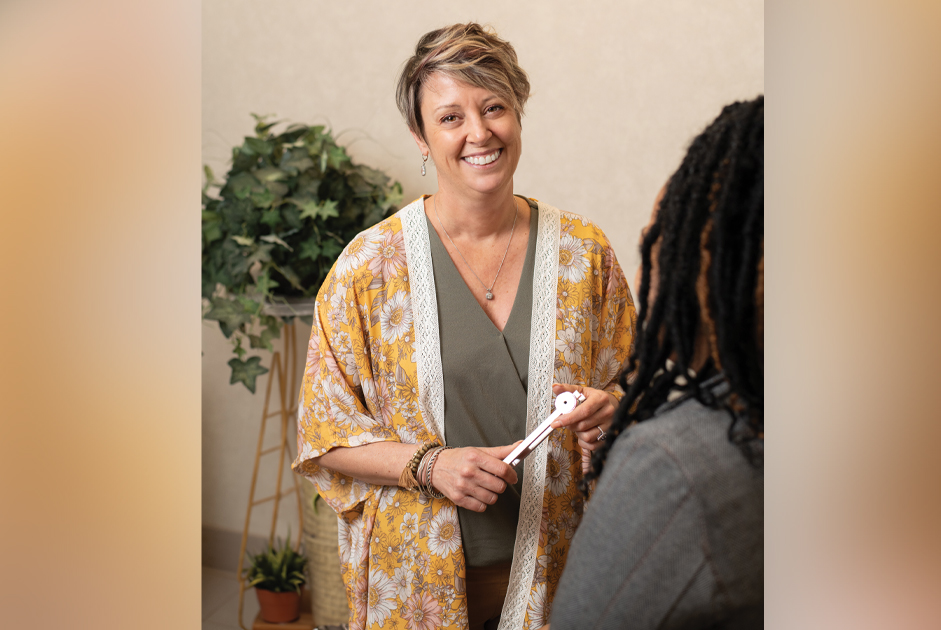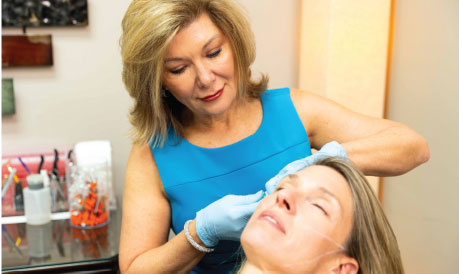The month of March is dedicated to Deep Vein Thrombosis (DVT) Awareness. And while DVT isn’t a common term, understanding more about this condition is vital to good health. That’s why we went to the experts at Novant Health Vein Specialists — the only vein clinic in the Triad run entirely by vascular surgeons — to learn more.
Kristen Wright, PA, shares her insights on how you can better understand what DVT is, and how to stay healthy.

FW: What exactly is a DVT?
Kristen: Deep vein thrombosis is what results from the formation of blood clots in veins buried deep within muscles. They are typically found in either the calf or thigh area, and these blood clots can travel to the heart and lungs, causing severe complications, and even death.
FW: How common is the condition?
Kristen: The Surgeon General reports DVT affects between 350,000 and 600,000 Americans annually. And each year, DVT is responsible for at least 100,000 deaths. Looking for warning signs can literally save your life.
FW: What are those warning signs?
Kristen: Warning signs can include pain, swelling, or redness in the legs. Some people have an unexplained cough, chest pain, or shortness of breath. But, we also know that nearly 50 percent of DVTs can occur with little or no symptoms.
FW: What are the risk factors for DVT?
Kristen: Smoking, pregnancy, and obesity can be risk factors for DVT, as well as being immobile for an extended period of time, for example when traveling by car or airplane. Leg health should be part of your regular wellness routine.
FW: What can you do to prevent a DVT?
Kristen: Just like an annual wellness check-up or yearly mammogram, leg health should also be part of your wellness routine. We encourage patients to drink lots of water and to wear loose-fitting clothing when they travel. It’s also important to get up and move regularly throughout the day. Another key part of good leg health is getting screened for DVT.
FW: What should we know about DVT screening?
Kristen: Anyone can be screened for venous disease based on a series of risk factors. Your risk of DVT increases with age, but younger people can also be at risk if they have the following conditions:
- Varicose veins
- Obesity
- Recent surgery
- Cancer therapy
- Immobility
- Smoking
- Use of oral contraceptives
And, of course, anyone with a family history of DVT or pulmonary embolism should be checked regularly.
FW: What are DVT treatment options?
Kristen: Treatment depends on the patient. If DVT is already present, a patient may need blood thinner therapy. Patients who are at high risk for developing a DVT may require therapy that is tailored towards prevention. That’s why proper evaluation by the board-certified providers is essential.
The first step is to perform an ultrasound to gauge your condition. We also offer free monthly screenings throughout 2022 at the Winston-Salem location on March 1 and 17; April 5 and 21; May 3 and 19; June 7 and 23; July 12 and 21; Aug. 2 and 18; Sept. 13 and 22; Oct. 4 and 20; Nov. 1 and 17 and Dec. 1 and 6.
Novant Health Vein Specialists has 10 experienced vascular providers you can trust, with convenient locations in Winston-Salem, Kernersville and High Point to meet your needs both in-person and virtually.
For more information or to schedule an appointment, visit salemveins.com, or call 336-276-0776.






















